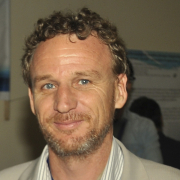
Copyright : Laboratoire LEMAR- 2018
Birgit Quack (GEOMAR, Kiel)
International
BMZ Germany
Start Date
02/04/2025
End Date
02/04/2025
The CLIMALG-SN project will contribute substantially to the transition of Senegal’s coasts towards sustainable development. The project will focus on seaweed habitats and investigate their potential to foster blue growth and to enhance biodiversity and ecosystem services in Senegal and the sub-region. The project will provide a road map to policy makers to encourage both cultivation of seaweed and preservation of natural seaweeds habitats as a tool for fisheries management and nursery ground for exploited fish (e.g. as Marine Protected Area, MPA). CLIMALG-SN will close a serious information gap on seaweed habitats, their current inventory in Senegal, their recent exploitation and their influence on biodiversity. Aquaculture (including seaweed aquaculture) is one of the eight priorities in the national Plan Senegal emergent 2019-2023 for the Senegalese government. As the maritime economy in Senegal is one of the top-ranking activities, the project will contribute significantly to biodiversity conservation perspectives in policy and planning processes for a sustainable blue economy. The project integrates existing knowledge of past projects and activities with interviews and from taxonomic identification, introduces genomics and metagenomics as novel methodologies, relevant for the identification of seaweeds and the associated species biodiversity into the region, and provides a data baseline. All activities contribute to capacity development in Senegal and the knowledge about the marine ecosystem, two key components for the socio-economic development. The expected results of CLIMALG-SN will be disseminated to different stakeholders. Those include institutions with an emphasis on policy and decision-making, including both maritime economy and environmental protection, potential stakeholders of seaweed production, small-scale fishermen, women associations, as well as local and sub-regional fishing commissions. Universities, research institutions, and private foundations, as well as technical partners working in Senegal, the Abidjan Convention, the Economic Community of West African States (ECOWAS) and the Regional Partnership for Coastal and Marine Conservation (PRCM) as well as United Nations organizations, will be included in meetings and workshops. Overall, the planned activities in CLIMALG-SN directly target the sustainable management and protection of marine and coastal ecosystems through the increase of scientific knowledge and research capacity. CLIMALG-SN contributes directly to SDG 14 “Life below water” and strongly supports further Sustainable Development Goals (SDGs) strengthening demand-led research for development.

 TriAtlas
Scroll to top
TriAtlas
Scroll to top